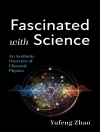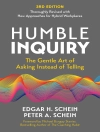Philosophical foundations of the physics of space-time
This concise book introduces nonphysicists to the core philosophical issues surrounding the nature and structure of space and time, and is also an ideal resource for physicists interested in the conceptual foundations of space-time theory. Tim Maudlin’s broad historical overview examines Aristotelian and Newtonian accounts of space and time, and traces how Galileo’s conceptions of relativity and space-time led to Einstein’s special and general theories of relativity. Maudlin explains special relativity with enough detail to solve concrete physical problems while presenting general relativity in more qualitative terms. Additional topics include the Twins Paradox, the physical aspects of the Lorentz-Fitz Gerald contraction, the constancy of the speed of light, time travel, the direction of time, and more.
- Introduces nonphysicists to the philosophical foundations of space-time theory
- Provides a broad historical overview, from Aristotle to Einstein
- Explains special relativity geometrically, emphasizing the intrinsic structure of space-time
- Covers the Twins Paradox, Galilean relativity, time travel, and more
- Requires only basic algebra and no formal knowledge of physics
Over de auteur
Tim Maudlin is professor of philosophy at New York University. His books include
The Metaphysics within Physics and
Quantum Non-Locality and Relativity.












